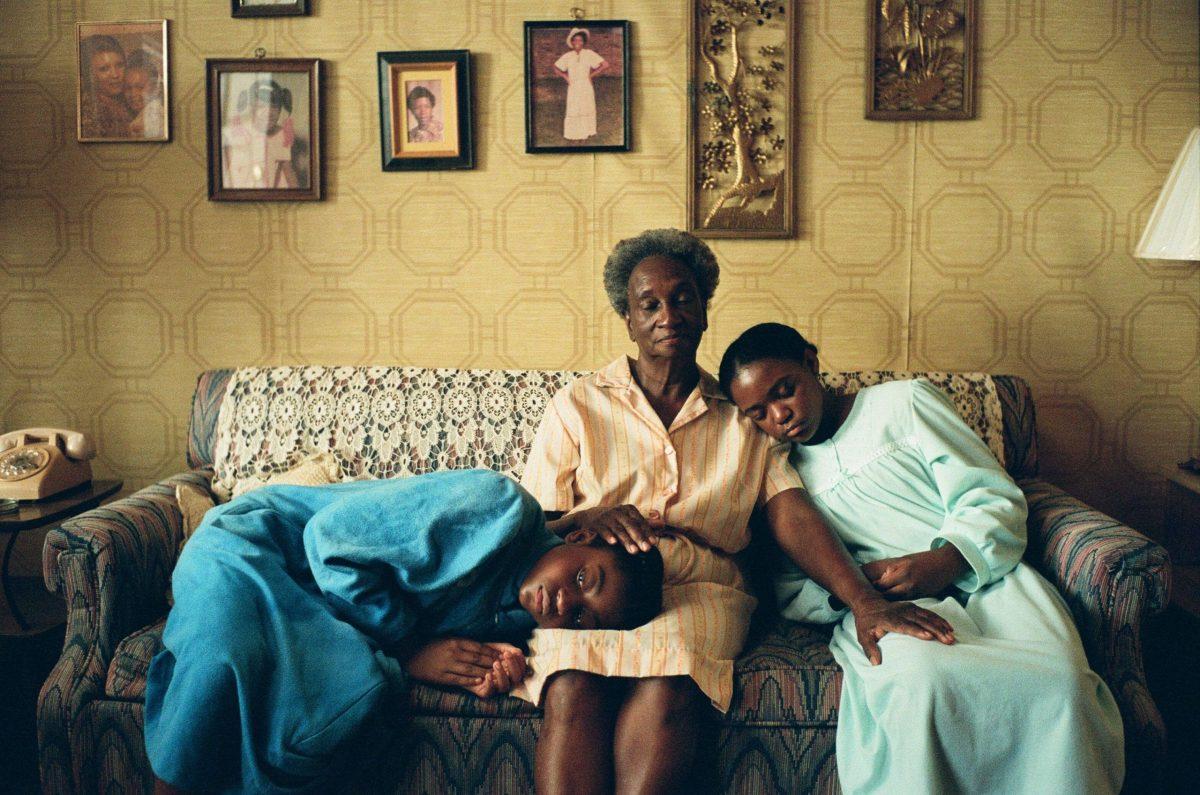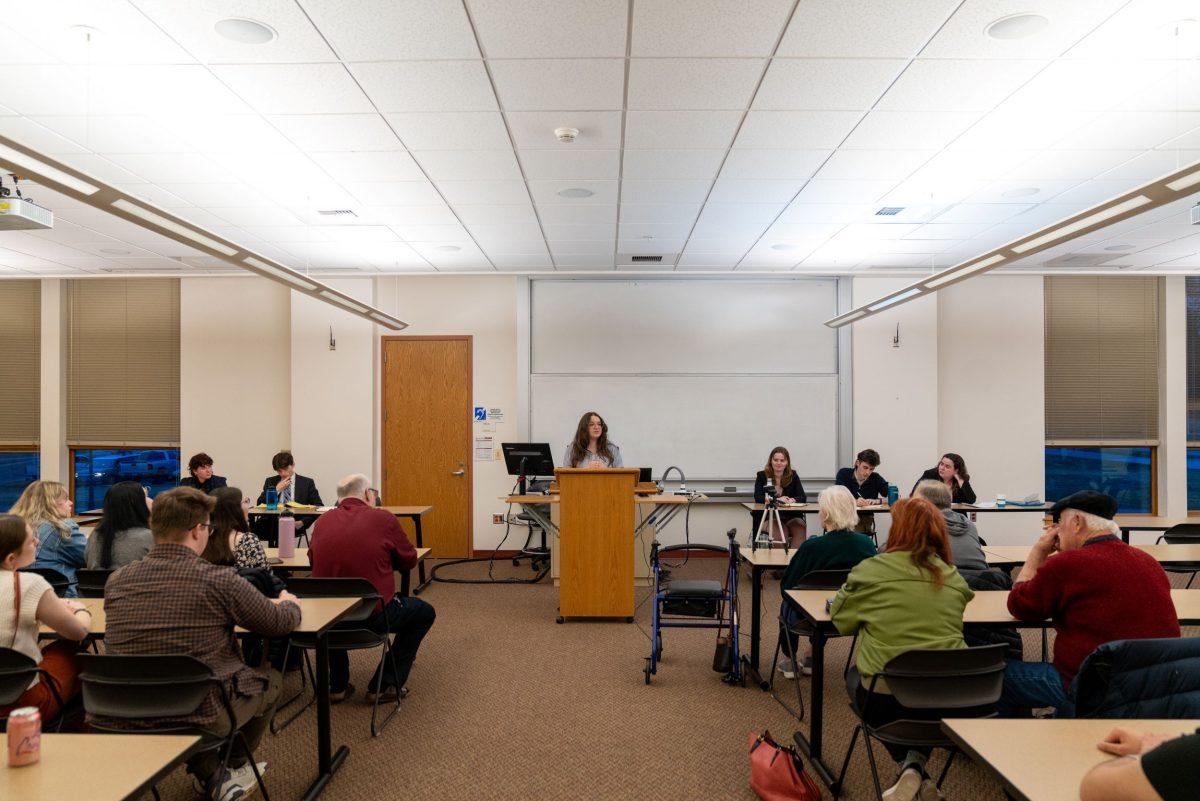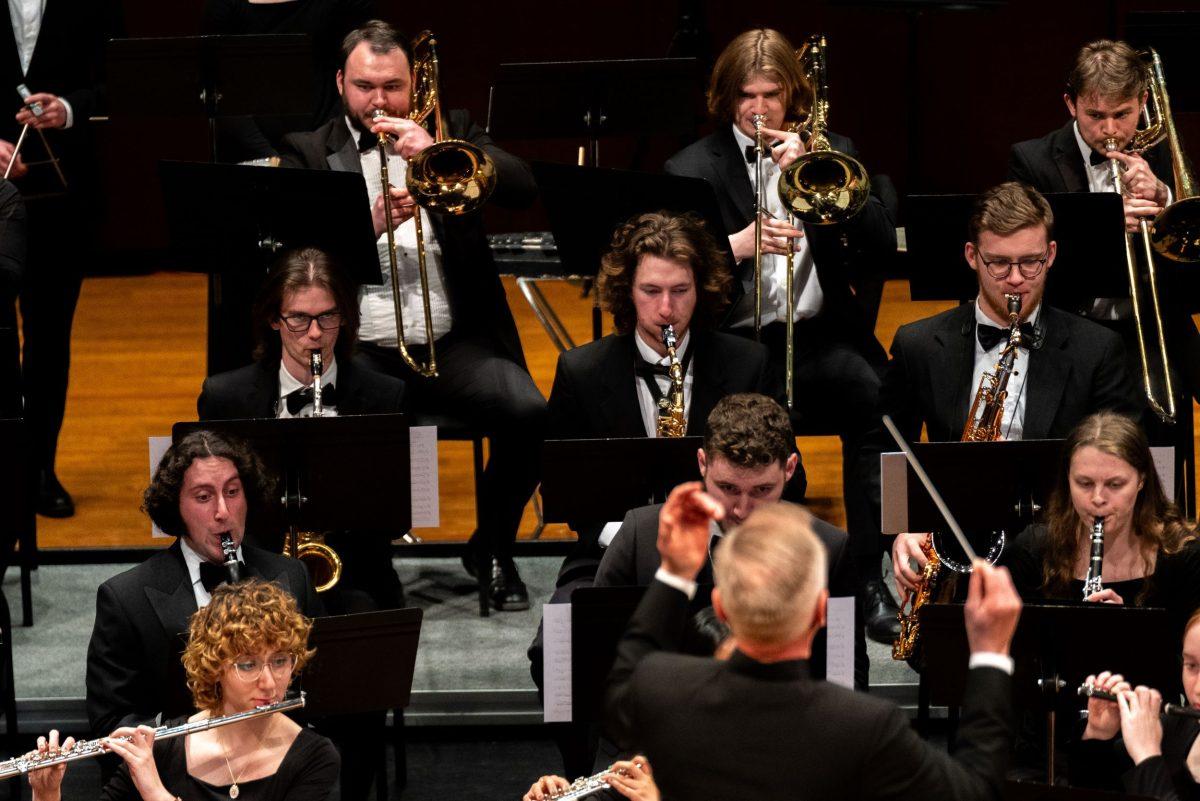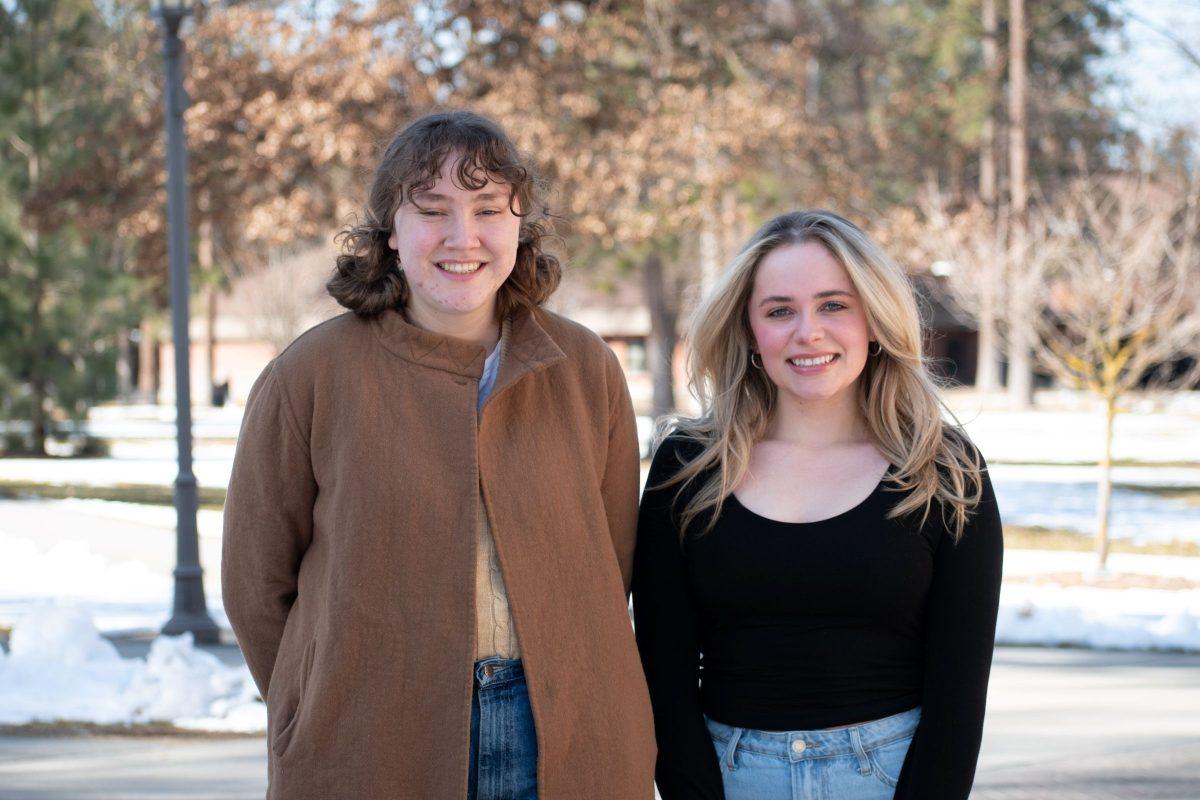Whitworth Theatre presents docu-drama about aftermath of hate crime
When the lights lift at the opening of the play, it seems as if the actors have forgotten to get into costume. They stand in strategic formations on a raised, slanted platform. The first characters are introduced and it becomes apparent that each person will be recognizable only by their mannerisms, accents and opinions.
The characters tell the story of Matthew Shepard, a college student from Laramie, Wyo., who was murdered in a hate crime because of his sexual orientation. After his death in 1998, New York’s Tectonic Theater Project members visited Wyoming over the course of a year, recording statements of Laramie residents, gathering court records, and studying media coverage. The statements then became the script for the play, in which the actors deliver the lines word for word.
Whitworth Theatre Department’s production of “The Laramie Project” opened March 8. The play is a rare experience for the department because it’s a docu-drama, meaning it is factual but has the artistic elements of a drama.
Director of the play Diana Trotter, a Whitworth theatre professor, said she doesn’t want audience members to be confused by the format of the play. Instead of structured acts and scenes, it is a continuum of “moments,” a collage of the characters’ experiences and reactions. She said it probably won’t be what the audience is expecting.
The play provided the actors with the experience of playing multiple characters, often within moments of each other. Junior Ramsey Troxel portrays seven characters in the play, but his two most prominent are Jedadiah Schultz, a Laramie resident who changes his opinions on homosexuality and Aaron McKinney, one of the two men who murdered Shepard.
“Playing Aaron McKinney was interesting because it would have been really easy to kind of play him up,” Troxel said. “But the whole point of the play was to get past hatred and not fight hatred with hatred.”
Out of senior Erin Ballo’s six characters, two are most recognizable: Reggie Fluty, the policewoman who first responded to the scene of Shepard’s attack, and Rebecca Hilliker, the head of the University of Wyoming Theatre Department. Ballo said the main challenge of playing real people is maintaining sincerity.
“You have to be truthful to this person that you’re being,” Ballo said. “You can’t just make a compilation of you and them together.”
The play has many strong messages, but the goal of Whitworth’s cast and director was to accurately portray the characters.
“The goal that should be done with this play is that you want to represent these people correctly and truthfully,” Troxel said. “We’re trying to present them how they really were without any agenda or bias.”
Since the characters are real, the script is comprised of their actual opinions.
“These are real people; these aren’t fictional creations, so there’s a tremendous amount of responsibility,” Trotter said.
Although the play addresses the topic of hate crimes in regard to sexual orientation, the main message of the play is about ending all hate and violence.
“The point of the play is to help humanity develop past hatred and violence,” Troxel said. “That‘s the only message that really does have an agenda in the play, which I think is something most people can get behind.”
Trotter said one reason she believes the cast has been so devoted to the play is because of the anti-hate message it sends the audience. She said she has seen their commitment and hard work cause them to grow as performers.
“I suspect that they feel the weight of this kind of work,” Trotter said.
Sophomore Bryan Peterson, whose most prominent roles are those of the head detective in Shepard’s murder case and Rev. Fred Phelps who protested at Shepard’s funeral, also said he appreciated the cast’s hard work.
“We put in a lot of work – four and a half weeks of work – trying to do this right,” Peterson said.
After each performance of the play there will be an optional discussion portion where guest presenters will host a time for audience members to interact with the cast. Psychology professor Patricia Bruininks lead the opening night discussion, and after the second performance, ASWU hosted a Whitworth staff panel in the coffee shop. President Beck Taylor is scheduled to present after the March 15 performance.
Freshman Rachel Robinson said the discussion portion on opening night was helpful because it brought other audience members’ responses to the play that she hadn’t thought of before. She also said she appreciated the honesty with which the actors portrayed the people of Laramie.
“They weren’t criticizing them, just portraying them for us to evaluate later in our own leisure time,” Robinson said.
On opening night, the discussion session covered topics from the play other than just hate crimes. Junior Ian Whitlock said he was surprised by alternative topics, such as the death penalty and forgiveness, that were discussed.
“You might go into seeing the show and have this idea of what to expect,” Whitlock said. “But how the show doesn’t meet those expectations, or shifts them, will change how you react to it. It can make it a lot more real, a lot more tangible.”
Whitlock also said each person is able to take something from the play.
“No matter what your view is, no matter how open-minded or close-minded you are, no matter how much experience you have, this show has value,” he said.
Ballo said the cast also did not go unchanged by the production of the play.
“I think the cast has come together in recognizing that outside of Whitworth there are so many opinions and perspectives that we don’t see because we are here, because we are behind the pine cone curtain,” she said.
Contact Claire Hunter at [email protected]






